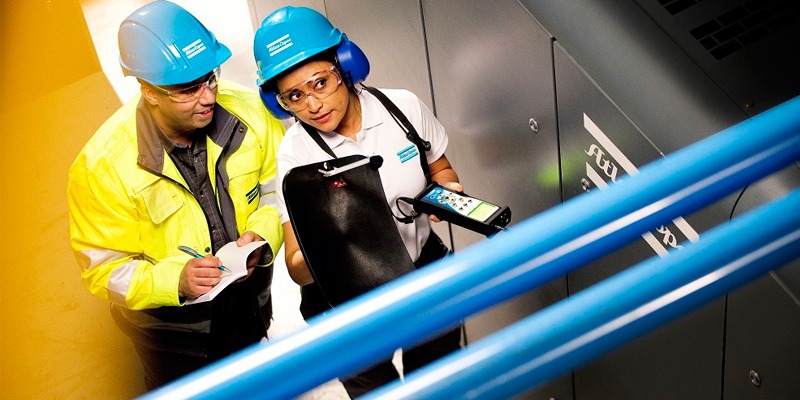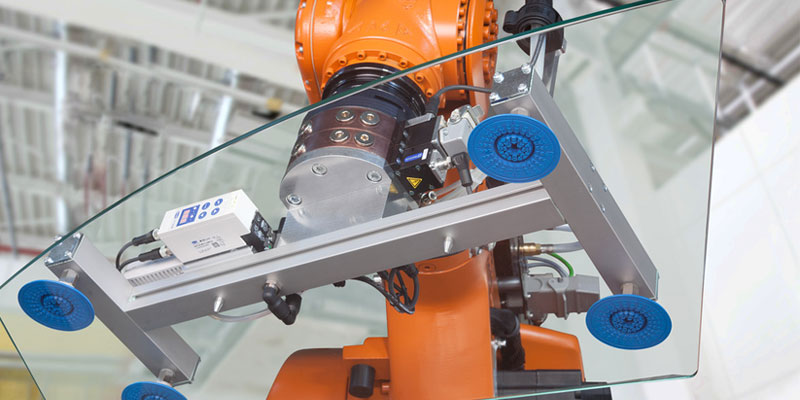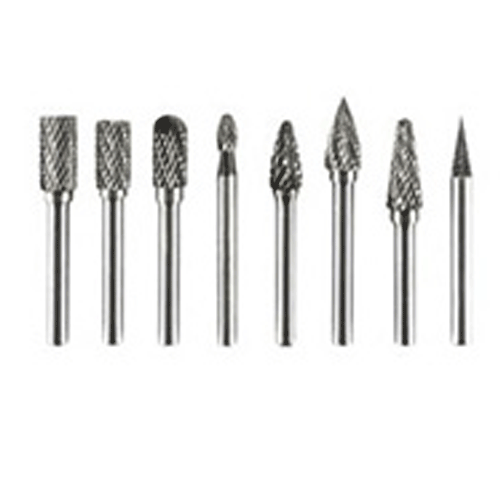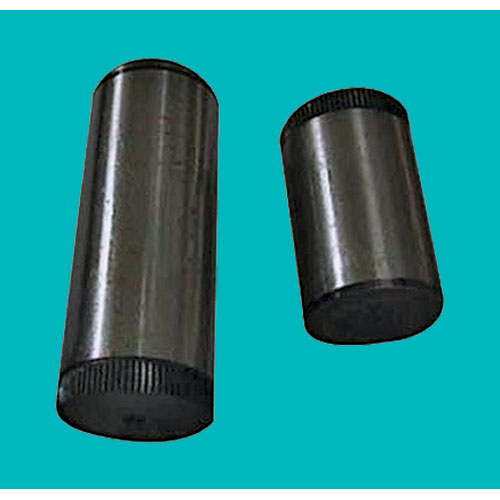Schedule a Call Back
What lies ahead post pandemic
 Industry News
Industry News- Oct 30,21

Covid-19 pandemic has disrupted every sector. Organisations which are serving technology, healthcare have experienced a surge in demand while those that manufacture tools for aviation, energy, and the automotive industry have experienced a slowdown. Manufacturing industry is the hardest hit segment due to Covid-19. India’s manufacturing sector output shrunk by 20% in the first quarter of 2020. Last year, the lockdown and restrictions completely halted manufacturing and derailed the global supply chain. The manufacturing sector is facing major disruptions in the areas of standard manufacturing processes i.e., production, demand, and supply chains.
However, there are some sectors like pharma and healthcare that witnessed major manufacturing demand and, therefore, growth.
The impact of Covid-19 on the global manufacturing industry can be divided into distinct manufacturing i.e., machinery, automobile, electrical and electronics, metal, aviation, etc. and process manufacturing sector includes chemicals, pharmaceutical, food & beverage and medical equipment, personal care & cosmetics, etc.
Component manufacturing sector
The hardest hit sector in the manufacturing industry is component manufacturing. Due to pandemic, the factories and production operations of automotive, electronics, aerospace, and others, got shut. China, the hub for the supply of raw materials to produce all the industrial tools, impacted due to Covid. It also impacted the whole supply chain due to lockdown in the entire world. Followed by lockdown, the manufacturing plants came to a halt and derailed the supply chain of several companies.
Food & beverage manufacturing sector
In the given scenario, food & beverage manufacturing companies are facing considerably reduced consumption as well as supply chain problems. The supply of ingredients and raw materials to the manufacturing sites has been affected badly which resulted into hampered production, forcing manufacturers to abstain from operations. Also, manpower availability in the time of lockdown has been another hurdle. According to French Trade Group, it has been noticed that food and beverage industry have suffered 22% loss in turnover globally.
The grocery sector is facing scarcity and the widespread stockpilers who have dived in panic buying have contributed heavily to it and of course the supply chain derailment.
Automotive manufacturing sector
Every industry segment has been affected by the pandemic and the globally integrated automotive sector is no different. Factory disclosures, supply chain disruption, and declining demand have all taken rise. Due to Covid, the industry almost been at standstill. A sustained shortness of consumer demand has significantly affected auto manufacturers’ cash flows and revenues due to lockdown.
Suppliers facing liquidity issues may capitulate to worsening market conditions, causing extensive disruption across the entire manufacturing ecosystem.
Pharma manufacturing sector
The effects of Covid-19 have put the global supply of medical products, raw materials, manufacturing of medical equipment etc. under enormous pressure. India and other countries who are under medical device and manufacturing rely largely on sourcing material directly or indirectly from China. Now, with the limited operational capacity in China, they faced supply shortages. Indian pharmaceutical sector depends almost 80% for active pharmaceutical ingredients (API) on China, considered as world’s leading producer and exporter of APIs by volume. Pharma sector has suffered tremendously due to heavy outbreak of pandemic.
However, it brought opportunities for some of the pharmaceutical companies to come forward and start trials and produce vaccines. India has established itself as leading manufacturer in the pharmaceutical sector. Many pharma and other industrial tools manufacturing companies started producing masks, ventilators, oxygen manufacturing and other related products and equipment. This approach has been able to minimize the loss due to pandemic but for long term, the medical sector must follow innovation and need to review the business processes to survive Covid.
The silver lining remains in the fact that the pandemic has urged businesses to build resilience and the government has opened many avenues for manufacturing to gain momentum with a view to restore economic progress.
What lies ahead post pandemic
Opportunities that lie ahead
India witnessed improvement in the manufacturing sector since October 2020 with businesses growing production. According to annual national income by Government of India, the gross value added at basic prices from the manufacturing sector in India grew at a CAGR of 5% during FY16 and FY20.
Companies are investing a lot into R&D and innovation to be prepared for the future demand. Manufacturers are working on robust plan for the betterment of business on short notice, prioritizing work force, implementing other measures to stay resilient during crisis and monitor potential collaborations. Many industrialists are also optimising and streamlining their distribution networks. They are now building better crisis management strategies and emergency response plans.
The pandemic has shifted focus from global to local. In this situation, manufacturers are trying to bring supply chains closer to home and are creating opportunities. Manufacturers are leveraging automation and digital technologies to foster growth. However, there is a need for manufacturers to revisit their sourcing strategies and alternate suppliers. This will create future opportunities for manufacturers who are currently utilizing industrial tools, such as cellular connectivity and technology hardware that will guarantee better ROI.
Industries like healthcare and pharma that have gain prominence will see further growth as demand for medical consumables and personal medical equipment is likely to grow. This would benefit the manufacturers of medical supplies across the board. Medical suppliers are now looking for local manufacturers rather than offshore to avoid disruptive supply chains. Many businesses are looking to optimise costs and maximise their productivity. Manufacturers should ensure efficacy and safety of medical products to guarantee patient trust in future.
Overall, industry experts across manufacturing sectors believe that the incorporation of software and automated technologies for factory operations and safety of the workers will enhance production capacities of companies in future.
About the author:
Frans Van Niekerk is the General Manager (Industrial Technique) at Atlas Copco - a Swedish company that provides compressed air and vacuum equipment, individual power tools, and construction and mining equipment, post selling service and maintenance.
Related Stories

Air-Saving Vacuum Ejectors Cut Energy Use by Up to 90% in Automotive Plants
Air-saving vacuum ejectors are helping Indian automotive manufacturers reduce energy costs, cut carbon emissions and achieve rapid ROI while ensuring reliable, zero-defect production, shares Rajesh ..
Read more
Ingersoll Rand Launches LS Series Oil-free low-pressure Compressors in India
Ingersoll Rand India has introduced its LS Series low-pressure oil-free screw air compressors, delivering ISO Class 0 air with high efficiency for demanding industrial applications.
Read more
Atlas Copco launches X-Air+ 750-20 portable compressor India
Atlas Copco has launched the X-Air+ 750-20 portable air compressor in India, targeting water well drilling and mining needs with silent operation, fuel efficiency, mobility and monitoring features.
Read moreRelated Products

Carbide Burrs
SRT Industrial Tools & Equipments offers a wide range of carbide burrs.

Jamshedji Soil Compactor
Jamshedji Constro Equip Pvt Ltd offers a wide range of jamshedji soil compactor.

Ground Pins
Hans Machineries Private Limited offers a wide range of pins, hardened & ground. Read more














